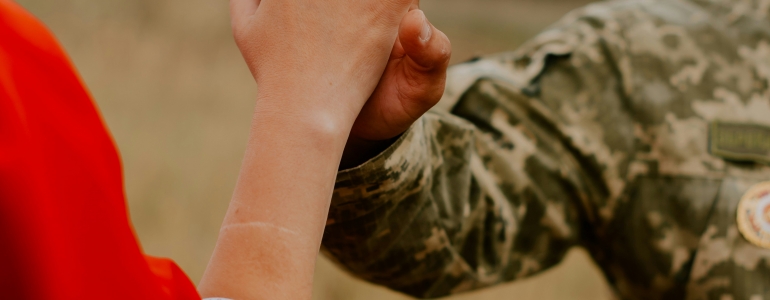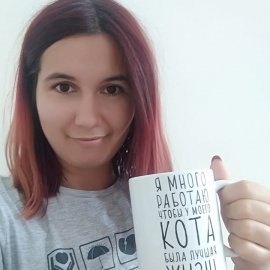Translated from Ukrainian by Galyna Kotliuk.
Sexual violence is an instrument of war used by the Russian Federation occupiers to harm the Ukrainian population, suppress resistance, and demotivate the army. Some incidences of rape have become known after the liberation of Ukrainian cities and towns, even more of them we will hear after the eastern regions of Ukraine are liberated. However, some women and men, even being trapped in the occupied territories and in the active combat zone, are looking for an opportunity to talk about the violence perpetrated by the Russian Federation’s military.
It is important to understand that sexual violence is not just about rape. It is any act of a sexual nature committed without a person’s consent. This includes forced nudity, compulsion to watch an act of sexual abuse, sexual slavery, prostitution, genital mutilation, etc. All these actions are defined as war crimes – a violation of the laws and rules of war.
Alyona Kryvulyak, director of the La Strada-Ukraine National Hotline, notes that many victims of sexual violence committed by the Russian Federation occupiers have been ignoring this traumatic experience. Thus far, they have needed to satisfy their basic needs or solve urgent problems: relocation, adaptation, humanitarian aid, employment, etc.
What do we know about the crimes of the Russian Federation occupiers?
The news about Russian soldiers raping women, men, and children began to emerge from the first days of the full-scale Russian invasion of Ukraine. Sexual violence in the occupied territories is widespread, but at the moment it is not possible to count the exact number of cases.
Organizations such as the United Nations, Human Rights Watch, and La Strada-Ukraine are documenting sexual violence in Ukraine. “The cases we have documented are characterized by unspeakable, deliberate cruelty and violence against Ukrainian civilians. Rape, murder, and other violent acts against people in the Russian forces’ custody should be investigated as war crimes”,
said Hugh Williamson, Europe and Central Asia director at Human Rights Watch.
It is extremely difficult to document all allegations of violence and obtain new testimonies from survivors due to the ongoing fighting and occupation and isolation of many towns and villages. Reports of atrocities against civilians come from people who could leave the occupied territories or after the liberation of certain areas.
In early March, the Minister for Foreign Affairs of Ukraine Dmytro Kuleba spoke about numerous cases of sexual violence in occupied cities. After that, Ukrainian Members of Parliament also began to report that Russian Federation soldiers deliberately and purposefully shot at women and children because Ukraine did not surrender. According to them, women of all ages – from the youngest to the oldest – have been gang-raped and sometimes killed.
The cases reported in the media are strikingly cruel and inhumane: the occupiers killed men and raped their wives in the next room, forced people to watch acts of violence committed against their relatives, etc. Some women and girls became pregnant as a result of sexual violence perpetrated by the occupiers. The psychological help hotline reports rapes of children, both girls and boys. Children often die from their injuries, and violence is intentionally committed in front of their parents. It is important to note that Russians commit sexual violence against men and the elderly.
Lyudmila Denisova, who served as Ukraine’s ombudsperson from March 2018 until May 2022, says that the Russian Federation uses rape and other forms of sexual violence as a warfare tactic – systematically, everywhere, and with tremendous brutality. Therefore, these cases cannot be explained as a vice of certain individuals. The occupiers also brag to their relatives and friends in Russia about atrocities committed, as has been proved by their conversations intercepted by the Security Service of Ukraine.
Some the occupiers’ wives support and encourage them to commit atrocities. A conversation was recorded where a wife of a Russian military serviceman “allowed” him to rape Ukrainian women, provided that he will use condoms and will not tell her anything. Another occupier’s wife described to him in detail how she herself would like to join the abuse: she would mutilate women’s genitals and carve stars on their backs.
Why do the military rape civilians?
The International Protocol on the Documentation and Investigation of Sexual Violence in Conflict names the motives of the aggressor, including the achievement of military objectives. When sexual violence is perpetrated in a mass manner, it is considered part of a large-scale attack on civilians or is an act of genocide. Such crimes can be committed by direct or indirect command, as well as when commanders systematically “close their eyes” and ignore violations of the rules by their subordinates. Sexual violence can also be used to weaken and gain control of a community. It can be a kind of torture that the aggressors use to punish, humiliate, and intimidate their victims or force them to disclose information. Importantly, sexual violence against civilians can be a reward for soldiers. This method also makes soldiers become accomplices in crimes, tying them to a group.
Dara Kay Cohen, author of Rape During Civil War, writes that sometimes in military conflicts, gang rape becomes a ritual to acclimate novice fighters to violence. This is especially relevant in patriarchal societies, where maturity and courage are associated with violence and domination. The researcher points out that rape as a form of forced socialization is often used in non-voluntary military formations, one that are formed through forced conscription. Rape as a warfare method is much less common among military personnel who become part of an army of their own accord.
Among the personal factors is the constant stress soldiers face during combat, which they seek to relieve. They can be driven by hatred of their enemy, the desire to avenge their fallen comrades, or to exercise power over the weak, thus symbolically regaining control of their own lives.
What do world statistics say?
Soldiers committed rape during 20th century wars with different intensity and different motivations. It could have been as a result of the direct order of a commander (as a strategic tool of war to intimidate the civilian population and to demoralize enemy troops) or from combatants’ own desire. The extent and scale of this war crime is impressive. Here are just some of the most famous examples.
• The so-called “Rape of Nanjing” in December 1937 – the siege of a Chinese city by the Japanese army, six weeks of killings and mass rapes. At least 20,000 women, children, and the elderly were raped during the occupation.
• In 1945, the Soviet Red Army committed nearly 2,000,000 rapes in the conquered part of Germany, including more than 100,000 cases during the Battle of Berlin. The Soviet command ignored and concealed these facts.
• According to Bob Lilly, a historian at Northern Kentucky University who gained access to the archives of U.S. military courts, American soldiers committed nearly 14,000 rapes in England, France, and Germany between 1942 and 1945. This resulted in a military discipline problem, which was actively counteracted.
• Mass rapes took place during the Yugoslav wars in the 1990s, during the war in Liberia (1989-2003), and in many other countries. Rape has also been reported as a way of waging war during the Tigray War in Ethiopia (2020-2021).
Rape as a typical instrument of war used by Russian Federation soldiers
Sexual crimes committed by the Russian Federation military are systemic and intentional. Over the last 30 years, they were perpetrated in Chechnya, the Republic of Georgia, Syria, and other countries. The behaviour of Russian Federation soldiers is the same everywhere.
Ichkeria. The rape of women during both wars for Ichkeria’s independence was massive and public. Russian Federation commanders watched these crimes and sometimes participated in the acts of violence. According to Human Rights Watch, detecting and documenting rapes of Chechen women was a very difficult process since sexual harassment is a taboo topic in Chechen society, and thus many survivors remained silent about the violence they had faced. However, some testimonies were documented. Women residents of the city of Aldi said that the Russian military first raped Chechen women and then killed them. It is also known that rapes had a repeated nature: women were taken from one household to another to be raped.
According to the residents of Sernovodskoe village, the Russian Federation military raped several dozen men in an open field. Nothing like that had happened in Ichkeria before; only cases of sexual violence against men in prisons had been known about, but such kinds of mass and public crimes had not before been committed by the military. Information about the rapes was publicized much later, since this type of violence is considered one of the most severe in the Caucasus region.
Journalists and human rights activists who were covering the events in Ichkeria reported that at the beginning of the Second Chechen War in 1999, large units of camp guards, officers, and privates were relocated to Ichkeria. They systematically committed rapes first in camps and then against civilians. This is the old Gulag method of destroying an individual. In the war against the Chechens, rape was used consciously and intentionally.
Republic of Georgia. During the war in South Ossetia in 2008, the Russian Federation military kidnapped, raped, and killed young women and men. This has been documented in eyewitness testimonies. One Georgian woman, whose name has not been disclosed, appealed to the Court of Justice of the European Union. According to her, non-Georgian soldiers broke into her house located near the conflict zone during the Russian-Georgian war. They raped and robbed her.
Syria. According to a UN report, in Syria, Russian Federation “peacekeepers” together with Syrian pro-government forces raped children, women, and men in order to punish communities that were opposing them. Civilians were first raped during property searches and ground warfare, and then at checkpoints and detention facilities. Boys and men were forced to have sex with each other and with other relatives. They were also raped with various objects.
Why little is said about sexual violence
In 2014-2015, residents of the eastern regions of Ukraine began to report the rape of women in the Anti-Terrorist Operation (ATO) Zone. There are still no official statistics on rapes committed during the eight years of fighting and occupation in the eastern regions of Ukraine. It is extremely difficult to record all the crimes as some of the victims have died and some who are now in safety are afraid or ashamed to talk about their experiences. Perpetrators who are located in the occupation zone or in the Russian Federation are extremely difficult to prosecute.
According to La Strada-Ukraine director Alyona Kryvulyak, in the three months of the full-scale invasion, their hotline received 17 reports about sexual violence committed by the Russian Federation occupiers: 16 reports from women and one from a man. Until recently, sexual crimes committed by the occupiers were regularly reported about by the Commissioner for Human Rights Lyudmila Denisova.

Alyona Kryvulyak
However, these are not representative statistics: the published data do not correspond to the scale of the crimes, which is difficult to assess for several reasons. According to Alyona Kryvulyak, the first and foremost obstacle is the great fear of reporting such crimes. Many people who have suffered from sexual violence perpetrated by the Russian Federation soldiers are not ready to talk about it because they are uncertain about their safety and the general situation in the country. Even if the town where the crime took place has already been liberated, the citizens are still afraid that the Russians may return.
The second reason is gender stereotypes, which are still prevalent during the war. People are afraid of condemnation and for their public reputation. Some survivors of sexual violence may have faced victim blaming, which is quite wide-spread in Ukrainian society.
La Strada has been working with issues of sexual violence during the war since 2014, and the organization’s employees say that there were only a few appeals before and after the full-scale Russian Federation invasion. Although the state is now making a major contribution to record and document cases of violence, and the media are making every effort to raise awareness of the problem, the shame and fear of talking about it still remain.
What does international and Ukrainian legislation say?
The sexual violence perpetrated by the military is punishable. Punishment is imposed as a result of legal proceedings in the International Criminal Court in The Hague, started by Ukrainian tribunals or national courts. Therefore, it is important to record crimes and gather as much evidence as possible to bring the perpetrators to justice.
Lilia Oliynyk, a lawyer and member of the JurFem: Support for Victims of Sexual Violence and All Forms of Gender Discrimination initiative, says that there are various international and national tools for regulating sexual crimes during war.
For example, the Geneva Convention relative to the Treatment of Prisoners of War (1949) stipulates in Article 14 that prisoners of war are entitled in all circumstances to respect for their personality and their honour. It also states that “women shall be treated with all the regard due to their sex.”
The Principles of the Geneva Convention relative to the Protection of Civilian Persons in Time of War (1949), namely Article 27, stipulate that “women shall be especially protected against any attack on their honour, in particular against rape, enforced prostitution, or any form of indecent assault.”
Article 75 of the Protocol Additional to the Geneva Conventions of 12 August 1949, relating to the Protection of Victims of International Armed Conflicts (1977), prohibits “outrages upon personal dignity, in particular humiliating and degrading treatment, enforced prostitution and any form of indecent assault.” Article 76 also postulates direct protection of women from “rape, forced prostitution and any other form of indecent assault”, and Article 77 guarantees the protection of children “against any form of indecent assault.”
According to Khrystyna Kit, head of the JurFem Association of Women Lawyers of Ukraine, it is important to realize that the responsibility for sexual violence committed during a conflict or war lies not only with the perpetrator, but also with the military command of the unit where a perpetrator served at the time of committing a crime. Article 28 of the Rome Statute of the International Criminal Court provides for a commander’s liability for war crimes, crimes of genocide, and crimes against humanity.

Khrystyna Kit
As for Ukraine’s national legislation, legal liability for violating the laws of war is articulated in the Criminal Code of Ukraine. According to Lilia Oliynyk, Article 438 guarantees punishment for the ill-treatment of prisoners of war or civilians, for using means of warfare prohibited by international law, and for other violations of the laws of war. Such actions are punishable by imprisonment of up to 8-12 years. If combined with intentional murder, the crimes are punishable by imprisonment for 10-15 years or life imprisonment.
Article 442 of the Criminal Code also provides liability for the crime of genocide, which is defined as “an act intentionally committed with the intent to destroy, in whole or in part, of a national, ethnic, racial or religious group by killing the members of such group or causing them serious bodily harm, inflicting on the group conditions of life calculated to bring about its physical destruction in whole or in part, imposing measures intended to decrease or prevent births within the group, or forcibly transferring children of the group to another group.”
Depending on the circumstances of the sexual violence committed by the military, it can also be classified as other war crimes, namely intentional murder, torture or inhuman treatment, intentional infliction of severe suffering, serious bodily injury or health damage, infliction on persons under the control of the opposing party physical injuries that cause death or seriously endanger health of such persons, or encroachment upon personal dignity, including abusive and degrading treatment.
Lawyer Maria Zheltukha emphasizes that the president must sign the bill “On Amendments to Certain Legislative Acts of Ukraine on the Implementation of International Criminal and Humanitarian Law” № 2689 of December 27, 2019. This document will provide criminal prosecution for international crimes, such as war crimes, crimes against humanity, and genocide.

Maria Zheltukha
The expert notes that it is also necessary for Ukraine to ratify the Istanbul Convention [transl.: Ukraine ratified the Istanbul Convention on June 22, 2022]. This document will help prevent cases of gender-based violence and ensure the investigation of such crimes and the punishment of perpetrators. In addition, the convention will provide legal and psychological help and services to overcome psychological trauma for people who have been sexually abused, including those involved in conflict.
How do Ukrainian officials fight sexual violence?
Office of the Deputy Prime Minister for European and Euro-Atlantic Integration. Olha Stefanishyna is currently working on reorienting government resources to create centres of psychological, medical, and legal services to citizens who have suffered sexual violence committed by the Russian Federation occupiers. Stefanishyna is also facilitating expanding cooperation with the UN to prevent and effectively respond to sexual violence during the war.
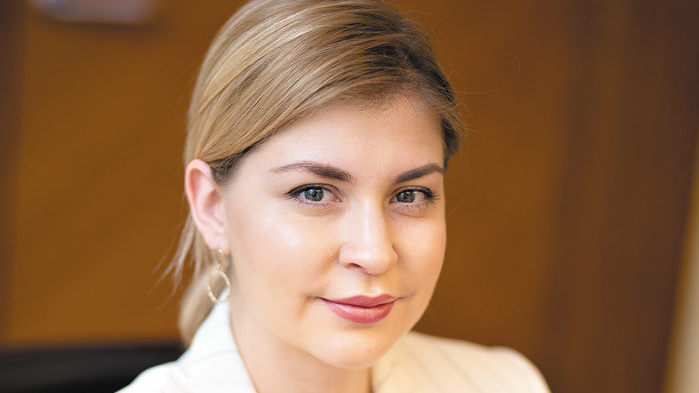
Olha Stefanishyna
Human Rights Commissioner. Lyudmila Denisova collects and records cases of sexual violence committed by the Russian Federation military in the temporarily occupied territories and in the war zone. In April, a special telephone hotline for psychological help was launched, where those in need can find help from five expert professionals. Importantly, in May 2022, Ukrainian media representatives signed an open appeal to Denisova demanding that she change her rhetoric when reporting sexual crimes during the war, which are published on her official pages, and to avoid excessive descriptions. [transl.: Parliament relieved Ms. Denisova of her duties as the Human Rights Commissioner on May 31, 2022]
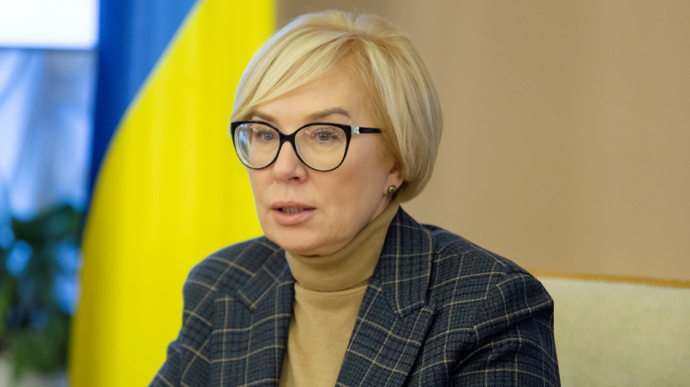
Lyudmila Denisova
Government Commissioner for Gender Policy. Kateryna Levchenko creates brochures and booklets that instruct what to do in case of witnessing rape or experiencing sexual violence. She is currently working on establishing an international platform that will help ensure decent treatment and respect for the human rights of survivors.
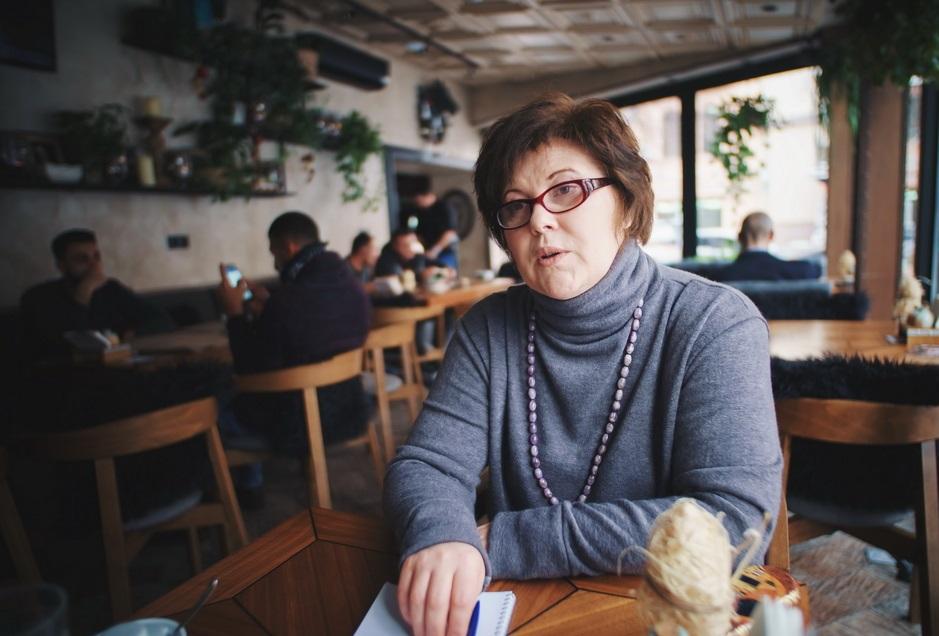
Kateryna Levchenko
Psychological advice: how to protect yourself, survive, and manage trauma
Rapes in peacetime and during war have completely different aims, and thus the approaches to helping victims of violence need to be different, because common methods are no longer effective.
A psychologist and volunteer who works with people who have experienced violence by the Russian Federation military suggests the following advice. It is important to mention that no advice guarantees safety and recovery. The human body can have different reactions to stress, but whatever the situation, a person should never blame themself.
1. The currently available information proves that nothing can stop the occupiers from sexual violence. Age, gender, appearance, or the presence of children nearby are no restraints for them. In an occupied city, it is necessary to try not to attract the occupiers’ attention and, if possible, to stay in shelters.
2. In a situation that threatens to escalate into violence, you should try to assess the power balance and the degree of threat. Resisting and fighting back against rapists can lead to injury or death. Life is the highest value and preserving it should be the highest priority.
3. In critical stressful situations, activate a protective mechanism called dissociation, a feeling of detachment from reality, as if the brain exists separately from the body. This feeling can be used to enhance self-preservation mechanisms, and thus you should try to amplify it. Maximum emotional and physical detachment helps to survive traumatic events.
4. Survivors of violence should leave the scene as soon as it possible. If there are trustworthy people nearby, ask for help.
5. Take care of yourself in a safe place. If there is water available, take a shower, use wet wipes (but not alcohol-based), give yourself some basic medical care. You can lie in a fetal position in order to feel the ground and come to your senses.
6. Help from people you trust is important. These can be relatives, friends, psychologists, or volunteers.
7. If you have enough resources, try to save your clothes and all other things that can help in the investigation of the crime. After stabilizing your state of body and mind, you should apply to the police to record the crime and increase the chances of bringing perpetrators to justice. You should be especially careful and consider all the risks: if the occupiers find any evidence, a person might face other immediate dangers.
8. If you know or see that a person you love or know has been abused, you should offer your help. This should be done as carefully as possible, asking about what is needed, not about what has happened. If nothing is needed, just be there for support.
What should you do if it is not possible to see a doctor?
The Euromaidan SOS initiative, Ukrainian Bar Association, and obstetrician-gynaecologist Natalia Lelyukh have developed recommendations for rape crime survivors in case medical care is unavailable.
Treating genital injuries
Use alcohol-free antiseptics, a baking soda solution (1 teaspoon per 0.5 litters of water), clean water, alcohol-free baby wet wipes, Triderm ointment, Levomecol ointment, Triacutan ointment, Bepanthen ointment, or use chlorhexidine once.
Do not use alcohol-based antiseptics and wipes, hydrogen peroxide, panthenol, oil, or other oil solutions.
If there are any vaginal antiseptic or antibacterial suppositories, apply them for 5-6 days. If there are injuries to the mucous membrane, bleeding, or hematomata, it is advised to start applying suppositories every other day.
WARNING! The dosage for all these products is indicated for adults. Teenagers need to consult a doctor to adjust the dosage (if it is not possible to get a consultation, carefully read the product instructions).
Preventing infectious diseases (gonorrhea, chlamydia, trichomoniasis). If possible, the following medications should be taken: metronidazole 500 mg – twice a day for 7 days; ceftriaxone 1 g – intramuscular injection once; azithromycin 2 g – one time. All of the medications can be used during pregnancy in any trimester.
Preventing unwanted pregnancy. Take any hormonal contraceptive in the following dosage (the active ingredients are present in most brands of contraceptives): 0.1 mg ethinylestradiol + at least 0.5 mg levonorgestrel (drospirenone, dienogest). Take the same dose again in 12 hours. This contraception is most effective if the drug is used in the first 24-72 hours after unprotected contact.
How to document evidence of sexual violence committed by the occupiers
Usually, documenting crimes is difficult, especially sexual ones, in occupied territories and in active war zones. Khrystyna Kit, head of JurFem, emphasizes that according to international practice, victims’ testimony may be sufficient evidence of sexual violence crime in the absence of any other additional evidence from other witnesses, documents, medical records, photographs, or any other potentially corroborating evidence.
Lawyer Lilia Oliynyk says that, first of all, it is important to provide survivors with psychological and physical security, help them restore their equilibrium, and find strength to proceed in court.
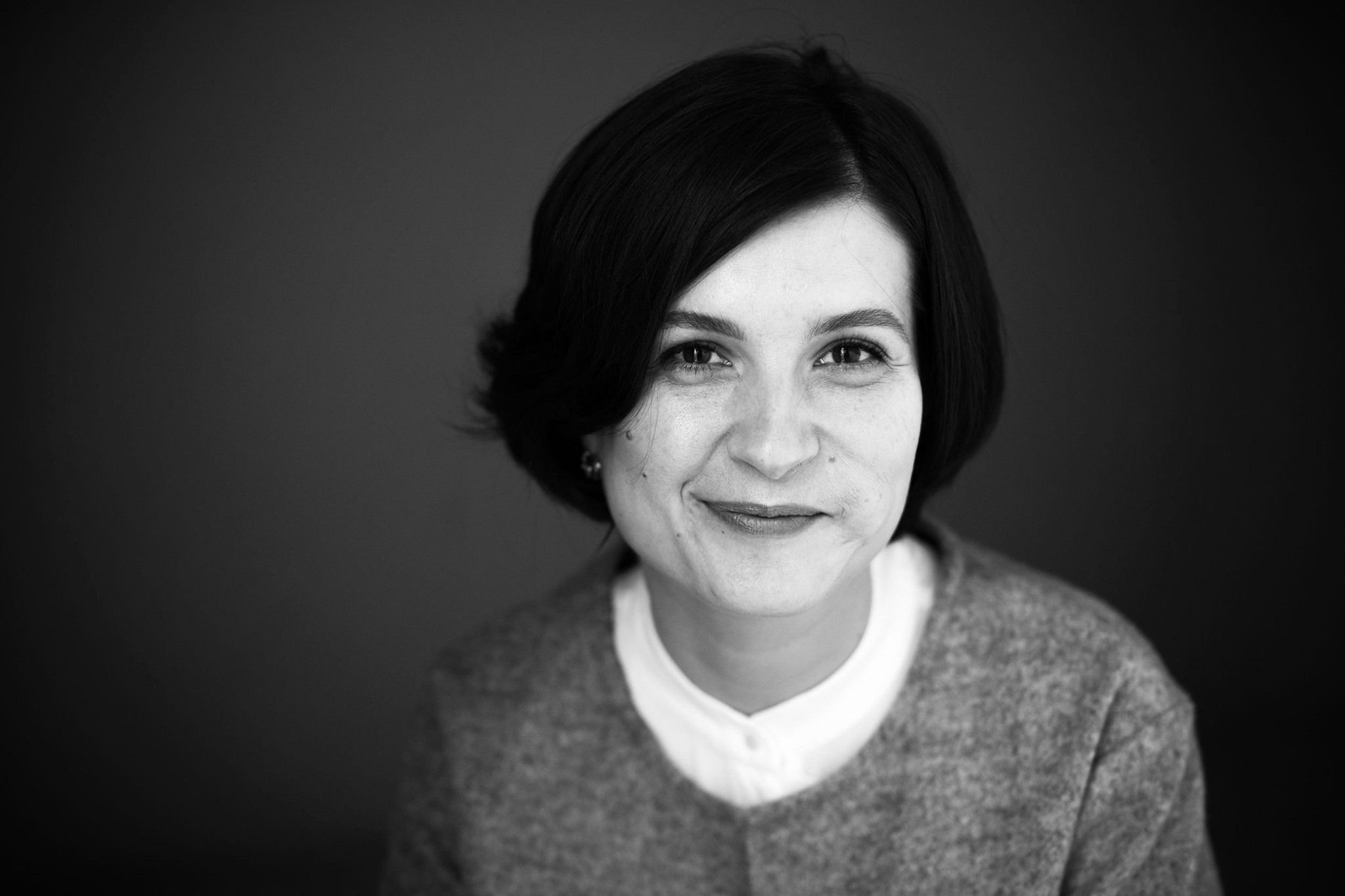
Lilia Oliynyk
In peaceful times, it is sometimes difficult to document sexual crimes based on medical investigations and examinations. However, regarding sexual violence committed by the Russian Federation soldiers during the war, the standard of proof is different: biological or forensic examinations are not required.
It is important to know that it is not always necessary to immediately contact police, since this can also pose a danger if the victim is in occupied territory. It is important to secure your personal safety, paying special attention to a personal physical and psychological condition.
According to the expert, during the war, the focus shifts from the issue of a victim’s consent (the fact of consent or non-consent) to the fact of coercive circumstances. In other words, it is not required to confirm the use of force by a criminal to prove the absence of consent or the fact of resistance. Instead, what is important is to find sufficient evidence to prove the existence of coercive circumstances. For example, occupation is a circumstance that makes it impossible to give real consent.
La Strada-Ukraine lawyers, the Ministry of Internal Affairs of Ukraine, and the Government Commissioner for Gender Policy prepared instructions on how to gather evidence of sexual violence during the war. Experts advise to document the crime if possible: take photos and videos, write down contacts of possible witnesses. Apart from that, it is important to remember or take notes of the following details: the crime scene, the date and approximate time, and details about the soldiers who committed the violence, such as their names or call signs, approximate age, appearance, rank and their conversations with each other.
ATTENTION! It is very important to be especially careful and consider all the risks: if the occupiers find this evidence, the person will be in danger.
The next step will be to apply to law enforcement agencies (police or prosecutor’s office, contacts are listed below). In this case, it is important to ensure that the report is registered and criminal proceedings have been opened. It may also be required to visit a health care facility in order to document the results of the violence. At the hospital, it is necessary to get a medical certificate and keep it. When seeking psychological help, it is also required to obtain conclusions of psychological expertise describing a person’s psychological state after the trauma.
These materials will provide evidence for courts in Ukraine and The Hague so that the invaders will be punished and the survivors will receive adequate compensation.
Where should you call to get help?
If rape or sexual assault has occurred, seek medical help at 103.
It is also necessary to report the crime to the National Police (102), the Prosecutor General’s Office (0 800 507 001), and the government hotline (1547).
People who are located in the temporarily occupied territories and cannot seek help from the local authorities can report a crime to the Office of the Prosecutor General by calling 38-096-755-02-40 or by e-mail conflict2022.ua@gmail.com.
Information for further investigation can be submitted on the website of the Office of the Prosecutor General or via Telegram bots @stop_russian_war_bot and @war_crime_bot.
For legal aid, you can contact the Free Legal Aid System Contact Centre (0 800 213 103), Jurfem (38-068-145-55-90), or the human rights initiative Euromaidan SOS Telegram bot @ESOSdoc or by e-mail evromaidansos@gmail. com.
For psychological and legal assistance, contact the National Hotline for the Prevention of Domestic Violence, Trafficking of Human Beings and Gender-Based Discrimination: 116, 123, or 0-800-500-335.
The Aurora online platform provides special psycho-therapeutic support to people who have experienced violence, including sexual violence during the war. The platform provides expert support from psychotherapists to help overcome traumatic experiences, restore emotional balance, and psychological resources to rebuild life. You can also seek advice from medical professionals to address urgent health issues and ask for professional help from lawyers. Anyone can apply for free support, regardless of gender and age, by completing an anonymous form on the “Break the Circle” website.
NGO Divchata [transl.: Girls] provides free psychological help to victims of sexual violence. Contact them by mail at helpgodivchata@gmail.com or by phone at 38-073-460-38-60.
For psychological support from Masha Efrosinina’s project, send an e-mail to a.kariakina@mashafund.org. For psychological help from the “Tell me” organization, contact them via email at tellmecomua@gmail.com.
Consultations with psychiatrists from the NGO Forpost [transl.: Outpost] can be provided by calling 38-096-839-76-17, or in Telegram at the same number or username @forpostcenter.
The collective trauma of Ukrainian society
Obstetrician-gynaecologist and researcher of sexual violence Halyna Maistruk believes that the Ukrainian health care system was not ready for what was happening in the territories temporarily occupied by the Russian Federation.
“Only now is the Ministry of Health of Ukraine beginning to develop forms and questionnaires that doctors can use to describe and document cases of sexual violence. In peacetime, a doctor could only record and describe the fact of rape, which had to be followed by a forensic expert’s investigation, since the evidence base in court would not be sufficient without it. Now a doctor will not just record, but also will be able to confirm the fact of rape. The process is complicated by the fact that in peacetime, doctors rarely worked with gang rapes. And even if the perpetrators would never be identified, a doctor’s conclusion should be enough for sexual violence to be documented as war crimes,”
the expert explains.
Halyna Maistruk adds that, due to the ongoing war, it is extremely difficult to verify crimes committed by the Russian Federation military, and preparing statistics for lawsuits at international courts might take years. According to her, Ukrainian society will receive severe collective trauma, which might take a very long time to overcome.
How should the media write about sexual violence?
Many stories of people surviving sexual violence have become known due to media reports. However, not everyone risks disclosing and talking openly about the details of the occupiers’ crimes. Sometimes the media pursue clickbait headlines, trying to catch the audience’s attention at the expense of people who have experienced or witnessed rape.
Hromadske Radio and Divoche.media have created a joint article to help Ukrainian media work with the topic of sexual violence in a more respectful and ethical way. The experts –
human rights activist Larysa Denysenko, editor-in-chief of Hromadske Radio Tetyana Troshchynska and editor-in-chief of Divoche.media Oksana Pavlenko – give the following advice.
- Follow the “do no harm” principle, even if it seems that this is the minimal harm that will protect others from sexual crimes.
- Base your work on the principle of trust. Journalists should listen to the story of a person who has trusted them, but should not play the role of an investigator.
- When it comes to verifying a story, it is necessary to record it carefully, but not to arrange a journalistic investigation. According to international law, a survivor’s properly documented story of sexual violence needs no further confirmation.
- The media should not intentionally provoke tears, but if a person cries, you should be prepared for it and not be afraid.
- Do not try to find any errors in a person’s story. Even if the interviewee confuses some details of their story or forgets certain moments, it does not mean that the person is lying. Contradictory or unclear moments can and should be clarified, but in a delicate and respectful manner.
- It is important to remember about personal data protection: do not publish photos and videos that may reveal a person’s identity or place of residence, do not publish any links to a person’s social media, and do not take any photos of the interviewee’s family.
- Moreover, a journalist’s duty is to make sure that the person understands the consequences of their frankness.
It is worth mentioning certain aspects noticed by the media representatives who asked the ombudsperson [Human Rights Commission Lyudmila Denisova – Ed.] to change her rhetoric in covering issues of violence. In particular, they ask for the following.
- Disclose only verified information. Check the facts before publishing.
- Check and think through every word to avoid creating sensational tabloid news kinds of messages.
- Avoid excessive detail in describing crimes.
- Use correct terminology and vocabulary: e.g., use the word “survivor” instead of “victim.”
- Ensure the confidentiality and safety of survivors, remembering that they can be easily identified if they live in small villages or towns.
- Remind about survivors’ support networks (e.g., human rights protection, professional psychological assistance).
In her expert commentary for Gender in Detail, psychologist Halyna Hook, a volunteer in the mental health crisis service, identified seven principles for properly covering cases of sexual crimes.
- Prioritising the traumatised person’s interests above collective (public) interests. The needs of a person who has been abused – their security, privacy, autonomy, and personal freedom – are an absolute priority when disclosing socially significant information.
- Informed consent and the principle of its reversibility. Professionals who accompany an abused person have to obtain the person’s informed consent to disclose their story, and consent can be revoked at any stage. Even if all the materials have been prepared and the work has been done, the person has the right to say “stop.”
- Competent intervention. To work with issues of violence, comment on or cover them in the media, one needs to have the necessary knowledge, skills, and relevant experience (the practice of “asking a psychologist for an opinion about ...” is quite common today, but often violates this principle).
- Confidentiality and anonymity. Information materials on war crimes, crimes against humanity, and ill-treatment should protect the survivors’ rights to confidentiality, anonymity, and privacy.
- Necessary and sufficient information. Whenever it is possible, media professionals should avoid telling stories of people who have been abused, even if they have their informed consent. It is recommended to refer to official statistics already published, talk about common trends, and discuss the situation in general, not the experience of separate individuals.
- Impartial and non-discriminatory approach to coverage. A gender-sensitive approach should be applied when informing society about the Russian military’s ill-treatment of civilians, especially about crimes of sexual violence. Subjective judgments and comments about the degree of traumatic experience of people of different genders or ages should be avoided.
- Social significance of information. When disseminating information that deals with sensitive or traumatic topics, it is important to remember that sexual violence is not a residue of war, but a weapon used against the whole society. It is necessary to focus not on individual cases, but on educating the audience, explaining the causes and consequences of certain events, and giving generalized recommendations and useful sources of information as well as professional (and, if required, legal) support.
Conclusions
Sexual violence is used as a weapon of war. For the occupiers, this is an easy and effective way to achieve their main goal: to destroy the morale and patriotic spirit of Ukrainian society. When Russian soldiers rape civilians, it is not about sexual interest, but about feeling a sadistic “victory”, establishing control, and in some perverted sense, winning the war. Rape and sexual violence during a conflict are not about sex; they represent power, domination, and humiliation.
Life is the greatest value, and preserving it must be a priority. The well-being of survivors is also an unconditional priority. Once the survival and well-being of citizens is ensured, the goal of society and government must be to achieve justice and punish perpetrators at the international level and to stop the shameful practice of sexual violence as a weapon of war worldwide, once and for all.



